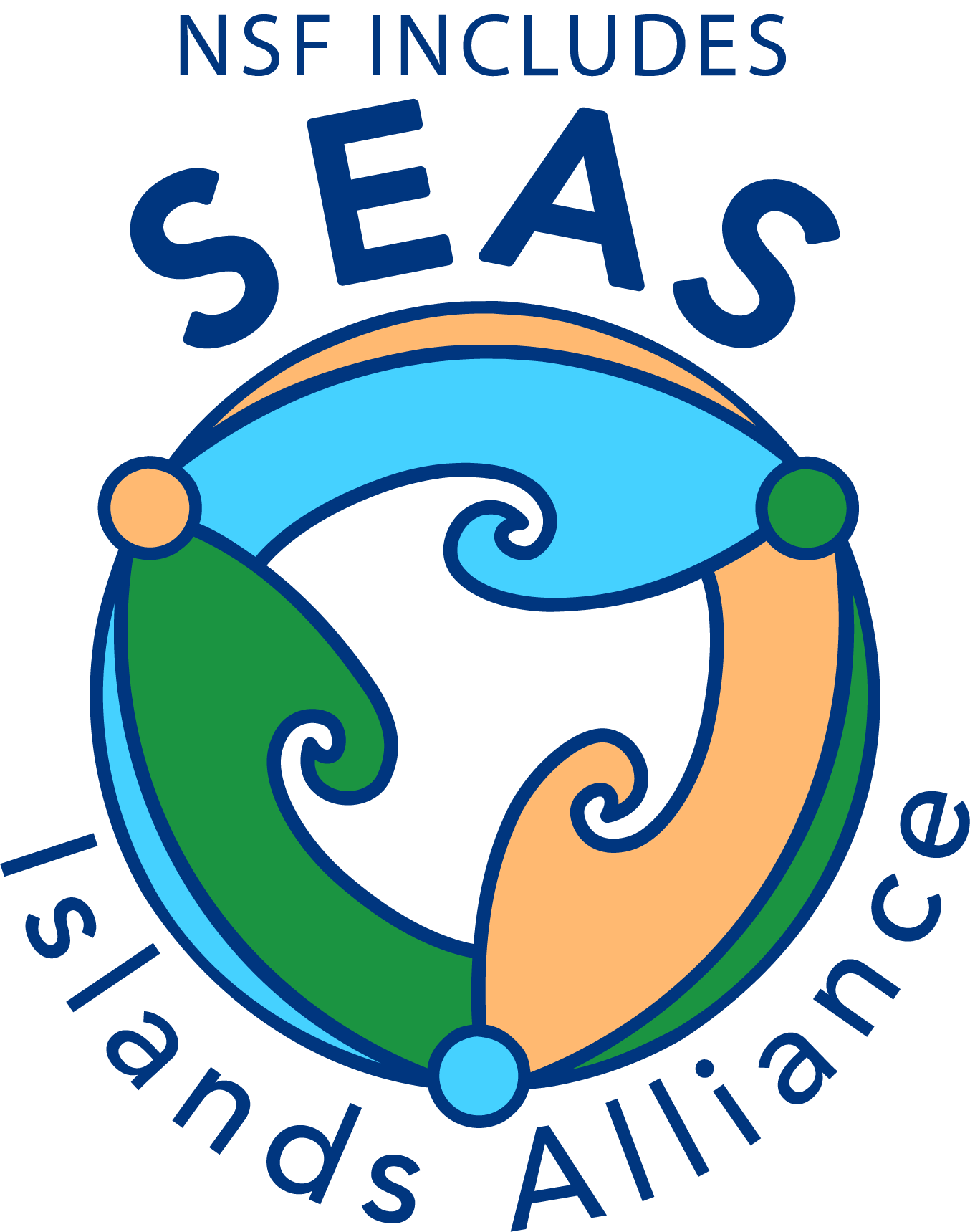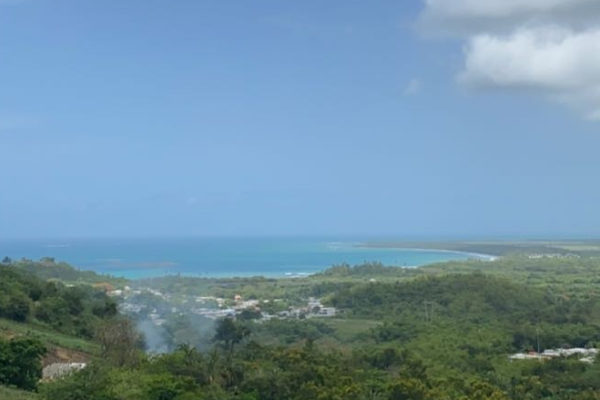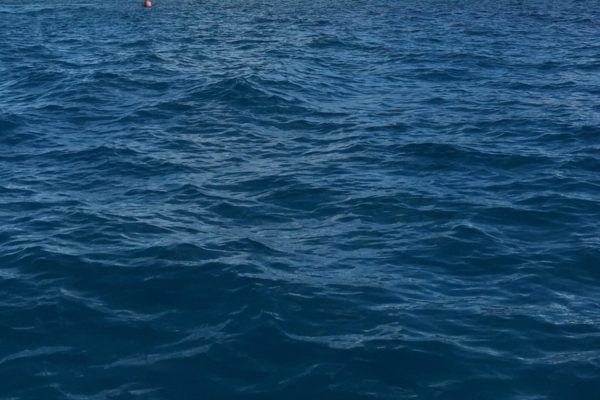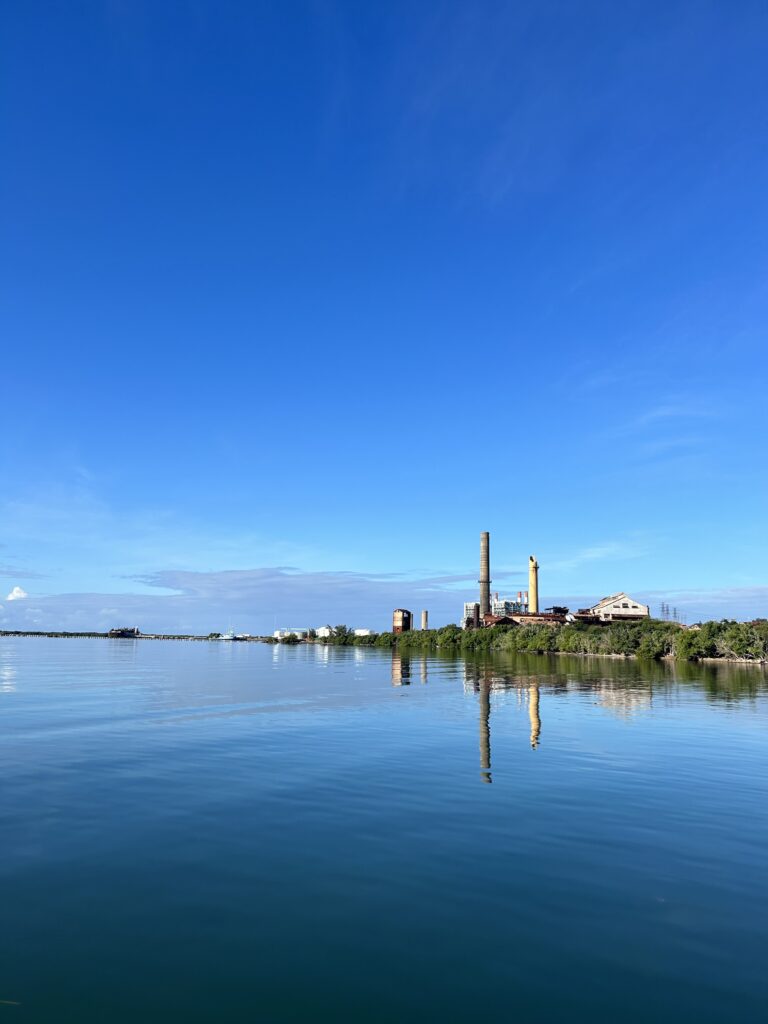
Jobos Bay Estuarine Research Reserve, Puerto Rico. Photo by Mairim M. Villafañe-Vicente
The SEAS Islands Alliance coordinates with local organizations to accomplish the program’s goals in broadening participation in science, technology, engineering, and math (STEM) education. The Jobos Bay National Estuarine Research Reserve (JBNERR) in Puerto Rico is an example of such a partnership.
Jobos Bay is one of 30 areas in the National Estuarine Research Reserve System that is protected for long-term research, water-quality monitoring, education, and coastal stewardship. Daily oversight is led by the Puerto Rico Department of Natural and Environmental Resources along with other local partners, and NOAA’s Office for Coastal Management provides funding, national guidance, and technical assistance.
You will meet three staff members of the Jobos Bay Reserve in this article: Director Aitza Pabón Valentin, Research Coordinator Angel Dieppa Ayala, and Stewardship Coordinator Milton Muñoz. Jobos Bay staff were interviewed by Mairim M. Villafañe-Vicente, a master’s student at the University of Maryland Center for Environmental Science’s Horn Point Laboratory who was previously a SEAS Islands Alliance workforce fellow. These interviews have been condensed and edited for clarity.
What do you do at the Jobos Bay Reserve?
Director Aitza Pabón Valentin: I manage funding from the National Oceanic Atmospheric Administration (NOAA), under the National Estuarine Research Reserve System and Puerto Rico Department of Natural and Environmental Resources. The National Estuarine Research Reserve is a program within NOAA that has a focus on research education and mainly tries to raise awareness about the quality of water. So, one of our main programs, the System-wide Monitoring Program [measures] water quality.
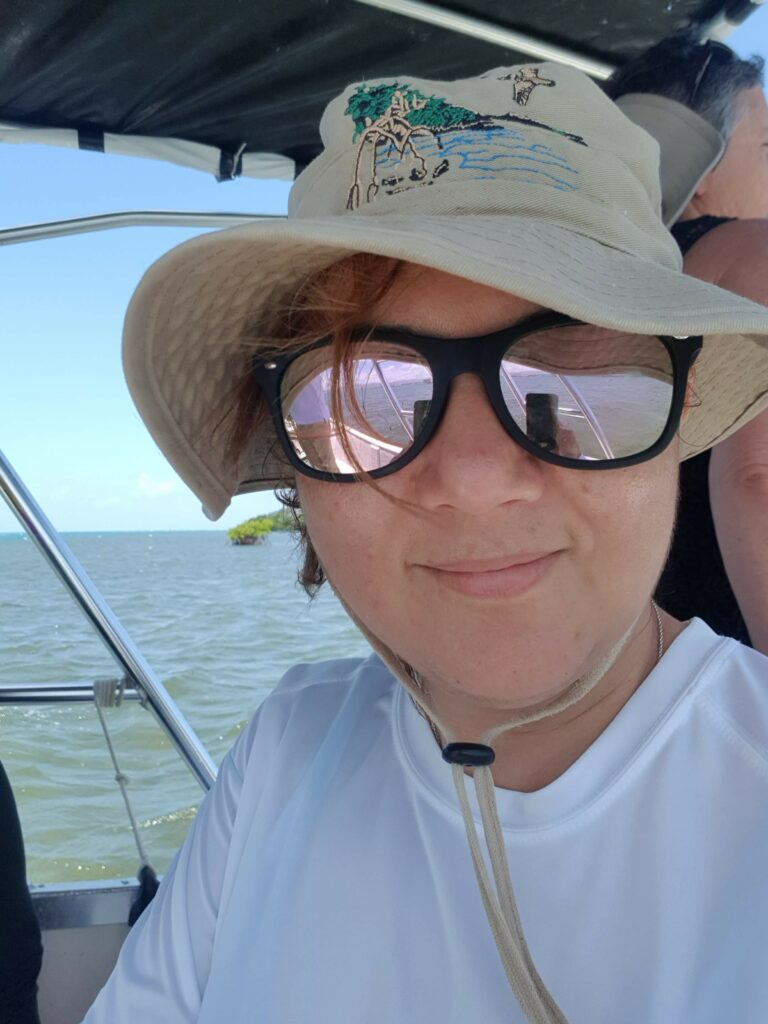
Director Aitza Pabón Valentin
Each National Estuarine Research Reserve site uses the same protocols for the water quality project. It is very important for us to keep that ongoing. For over 35 years, Jobos Bay NERR has been using the same protocols to continue monitoring the quality of water within the bay. I also supervise the program for education goals, the training program, the research program, and the stewardship program. I do a lot of administration and management. And I make a lot of calls for proposals and run discussions with stakeholders to get more data and to have everybody on board. I have been the director of Jobos Bay National Estuarine Research Reserve for over nine years now.
Research Coordinator Angel Dieppa Ayala: My main task is coordinating research that is focused on management. The idea is to promote research and monitoring that allows the manager to take action based on scientific data. My work here is coordinating research for the System-wide Monitoring Program. I oversee the water quality, weather, and vegetation monitoring in the reserve, among many other things. I’ve been here for 18 years.
Stewardship Coordinator Milton Muñoz: I am involved in all procedures regarding restoration projects and management of the reserve. Part of my work involves dealing with environmental violations, working hand-to-hand with the with the Department of Natural and Environmental Resources’ rangers. Another part is coordinating volunteer efforts in restoration, environmental enhancement, and conservation of all the ecosystems that we preserve here in the reserve. I have been here at JBNERR for nine years.
How are students involved at Jobos Bay and how are they affected by what they learn?
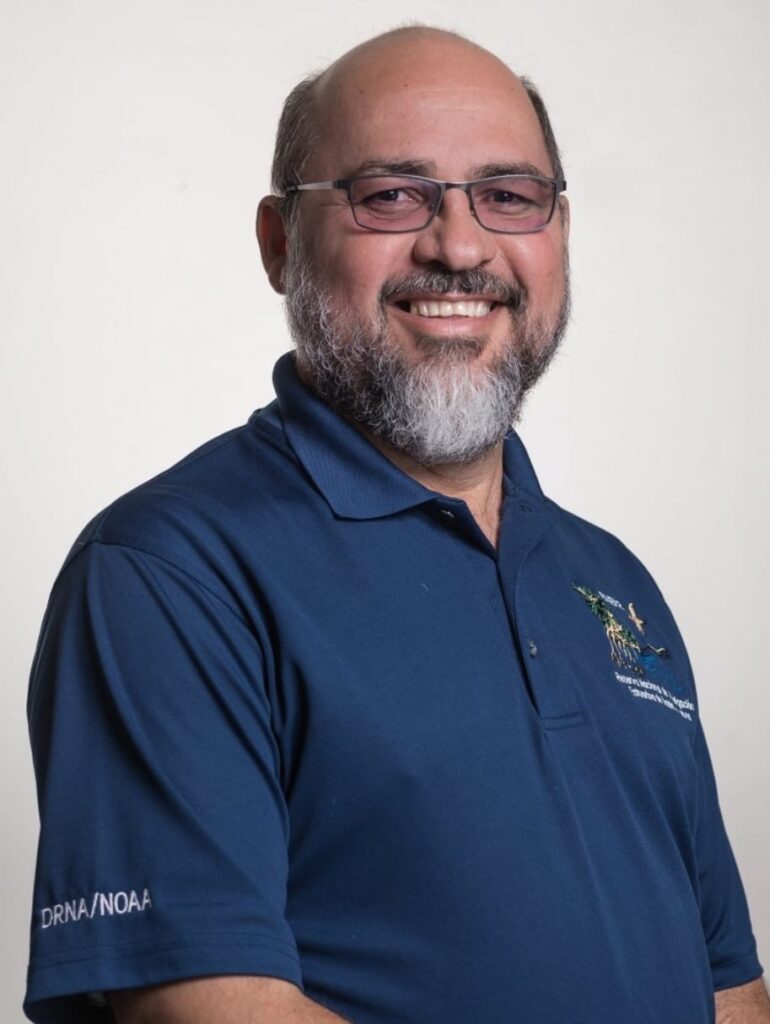
Research Coordinator Angel Dieppa Ayala
Pabón Valentin: We are trying our best to include more people and be more inclusive in many levels: groups, students, locals. There are some initiatives to bring in more agreements with universities to use our space as a natural lab, because we really want to encourage young people like you and others to come do science and have a job in science. One of the main things I keep saying to young people that are coming in is that you just have to keep listening, doing, and acting. If you have questions, ask. If you want to do it, do it. If you don’t ask, you’ll never know if you’re going to get another experience. And that will open up other doors for you. Don’t frustrate your career or yourself by doing things that you don’t love.
Dieppa Ayala (who mentors students at Jobos Bay): We have been lucky to have great students … that were willing to learn and were also eager to do heavy, high-impact work in the field in harsh conditions. [The students are] able to do many things that allow us to keep the pace. Having the fellows allows us to keep doing things that were quite difficult for us to perform by ourselves. We are looking forward to receiving more students. [There is often] a generational gap between me and the student … and sometimes we will like students to behave the way we do. The way we were taught to learn is different from recent years. I try to be patient. I acknowledge that student doesn’t need to know everything that I know, even though I expect students to have a background in science. What I expect from the student is that if you don’t know something … I will kindly explain to you and hope the student keeps it and doesn’t forget it.
Muñoz (who mentors students at Jobos Bay): It’s a good experience for us as a reserve and also for the mentee. Usually, we are short in personnel and they are helping in the different projects or monitoring what we are currently doing in our programs. The mentee is gaining experience and is learning about all those techniques or learning about ecological importance of the species. They are gathering all that knowledge that they can apply in a future study or work in the reserve. I think both sides of the process win.
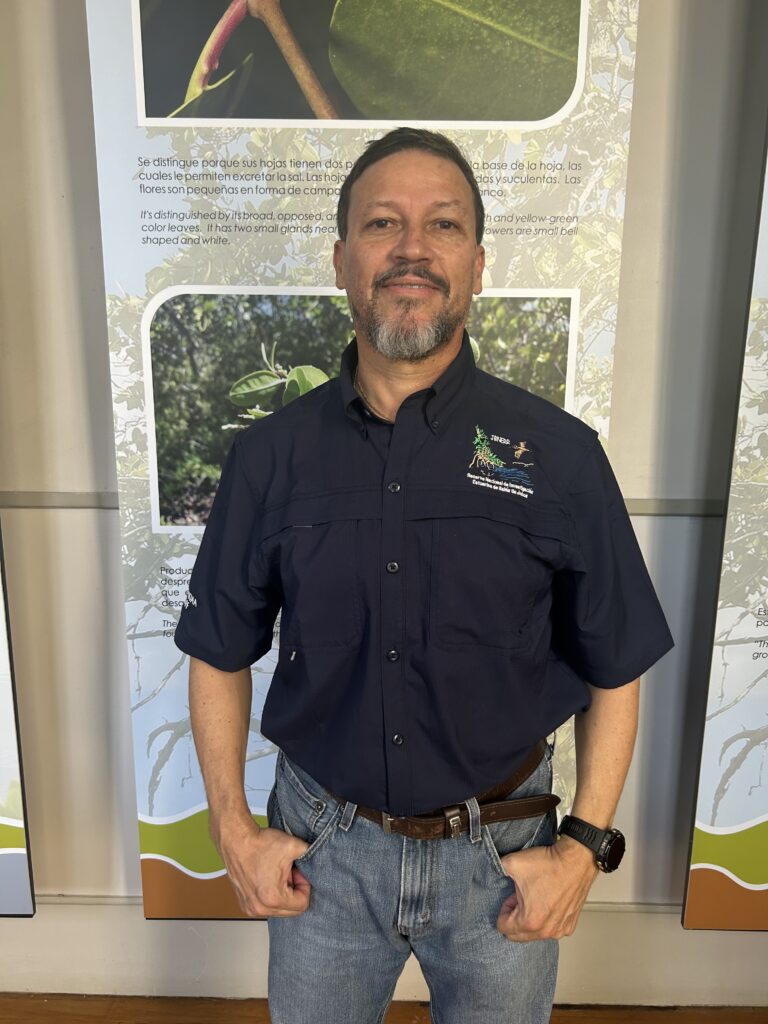
Stewardship Coordinator Milton Muñoz
What advice do you have for students who want to get involved in science?
Pabón Valentin: There are a lot of things that you can do in this career. I keep saying to the students: don’t close your eyes [to possibilities]. I did my masters in zooplankton, but am I doing zooplankton right now? No, life will take you to other places. Maybe you can do law—we need a lot of environmental lawyers. Maybe you do communications with the environment. Don’t close your opportunities to just one thing that you want to do; you can diversify.
Dieppa Ayala: They need to be focused on being very analytical thinking. Always asking, questioning, because that’s something that is part of the scientific method. I will say that the student or young person that wants to do science needs to be good in mathematics. There’s a lot of technology that helps to do science, but principally having the mindset of learning and getting [in] love with the environment [is important].
Muñoz: Be eager to learn and try to read a lot. Right now, in this digital era, it is easier to read information, reach the paper, get in the books. Just start navigating the internet trying to find good scientific sources to learn more. Try to go deeper into knowledge. That will help the student to better understand the issue and to be well-prepared for the future.
